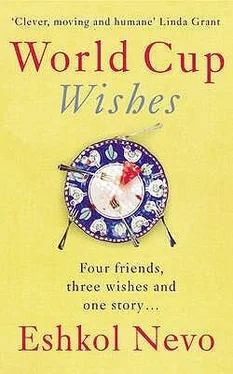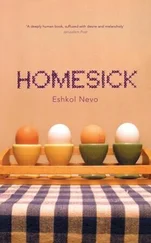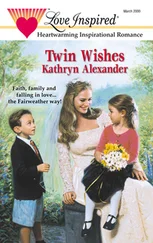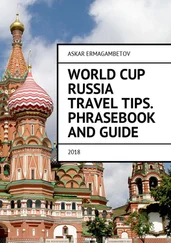And erupt into a stream of invective.
The loathing he felt for Yosef Miron-Mishberg behind his back was as profound as the reverence he showed him to his face.
That invective wasn’t the usual ‘good for nothing’, ‘nobody’, and ‘piss artist’. It was much more personal.
That poor wife of his, he would say to my mother as the employees of the printing house lowered their heads in embarrassment. Those poor children of his, to have such a father. They’re starving and he — he’s a writer! A writer? A hack! A graphomaniac! He got one good review in the local rag — even that was less than a hundred words — and ever since, he thinks he’s God’s gift. And he quit his job. Sent his wife with her back problems to work, and ‘devoted himself’ to writing. Writing my foot. He writes the same book every time. The name changes, but the book — exactly the same! And he isn’t even ashamed!!!
Norman, dear, aren’t you overreacting a bit? my mother would say, throwing a spanner into his blind rage.
Overreacting … overreacting … my father would mutter, circle his desk searching for an appropriate answer, and then he would pick up the pile of papers Miron-Mishberg had left and slam them onto her desk in despair. You know what, Marilyn, you print his book if you think I’m overreacting.
*
For years, I attributed my father’s dual attitude towards writers to the same duality that characterised my parents’ attitude towards people in general. With them, words were always a cover to hide the truth. They were nice to all the neighbours on the stairs, then at home, I’d hear what they really thought of them. They were quite cordial to all the employees in the printing house — right up to the day they fired them.
They had three couples they called ‘friends’ (as Wittgenstein said, the same word, in the mouths of different people, can serve to describe a totally different essence) — and they saw them twice a year for conversations on politics and cars and lounge suites, on nothing painful or real, and there was an ever-growing list of unpleasant subjects they simply ‘preferred’ not to speak of, even between themselves. You know I prefer not to talk about that, my mother would say every time my father mentioned the rift between her and her sisters. I prefer not to talk about that now, my father would say every time my mother suggested making changes around the house. And so, gradually, they vetoed every subject of conversation except other people’s lives, which they always analysed with haughty disapproval.
I understood, therefore, that behind the words my father spoke to writers was contempt, and that all his compliments had one purpose only — to get them to give him their money. It wasn’t until that summer, after high school and right before the army, when I worked as a messenger in the printing house and saw it all close up, day after day (and perhaps it wasn’t the closeness that enabled me to see, but my eyes, which had matured?) — it wasn’t until then that I began to suspect that my father’s attitude towards his writers was absolutely real, including the respect. And the contempt. And the condescension. And the avarice. And the generosity. And that all those contradictory passions could wrestle with each other within the same person.
*
That summer, for the first time in my life, a writer gave me a signed copy of his book.
I’d been sent to take Miron-Mishberg the first copies of his new book. He opened the brown package and ran his hand over the cover, flicked through the pages from the end to the beginning and gently separated two pages that were slightly stuck together, lowered his face to the book and inhaled the smell and said, to me or to himself, Every book has its own smell.
I said nothing. I thought about my father, who claimed that all of Miron-Mishberg’s books were the same and I actually had no idea whether my father was right or not, because I didn’t read them.
Miron-Mishberg fixed his pale, disturbing eyes on me and said, you have thinking eyes, boy. Do you know that? I looked down. Thoughts are always running through your mind, through your little head, he said, giving me a crooked smile. Is it true? Tell me, am I right or not? There was something frightening in his tone, so I didn’t answer. And he burst into strangled laughter that quickly deteriorated into a paroxysm of phlegm-filled coughing. When the cough had subsided a bit, he picked up a copy of his book, opened it to the first page, wrote something in large, messy letters and handed it to me. I said, thank you, mumbled something about other deliveries I had to make and got out of there while I still could.
It was only two days later, in the light of my bed lamp, that I dared to open that book.
It said, ‘To the boy with the thinking eyes, in friendship, Yosef Miron-Mishberg’, and under it was his curlicued signature, which looked like the flames of a camp-fire.
That night, I tried to read his book — and gave up after twenty pages. It was very beautiful, but I didn’t understand a word. I mean, I had a clear sense that the story had internal logic, it was just that I couldn’t follow it.
I blamed myself, of course. He was a great writer, that was obvious. The problem was mine — a small body, a small mind. Handicapped.
*
That was the feeling I walked around with for years.
There is a lofty, noble, frightening world of writers.
And there’s my world. The simple one. And a high fence separates the two. When I translate, I can climb that fence and peek into the other world, but in the end I always have to return to my world. Because I’m just a dull, ordiary person. And who am I to write anything?
*
For the first few weeks after deciding that I wanted to write a book and publish it before the World Cup, that was the voice that echoed inside my head: who are you to write anything? Who are you to write anything? Who are you to write anything?
I sat in front of the computer for a week, fingers frozen, refusing to move.
After a week, I decided that my problem was the computer. There’s no inspiration in trying to write on the computer. So I switched to a notebook. And to the fountain pen I’d received as a gift from one of my old clients.
Two days later, I realised that there was also a problem with a pen. There was something pretentious about it that impeded movement. And the black ink — it was ominous.
I went to the shop and bought a simple Pilot. Blue.
That didn’t help either. The page — remained white.
As white as the part of the body that’s covered by a bathing suit and doesn’t get tanned. As white as paleness. As white as emptiness. White — white.
*
True, I had no idea what the hell I wanted to write about.
My first thought was to call Ofir and ask if he had an idea. After all, he was the one our literature teacher said had talent. He was the one who wrote all those songs for our graduation play. And even the ads he created for banks and biscuits always had some kind of spark. And writing a book — writing a book was originally his dream, not mine, so let him take some responsibility, that sharwal !
But I stopped myself: you’re not writing for a Nobel Prize, you’re writing to complete the amazing symmetry and surprise your friends at the World Cup final. How can you surprise them if you ask for their advice?
While I was staring at the notebook, I remembered that one of my clients had told me about a writing workshop he goes to. I called him and he gave me the phone number.
The slip of paper with the number on it rested in my pocket for four days. A clear and determined inner voice objected strongly to the idea: who needs a workshop? A workshop is a group, and except for my friends, I don’t like groups. Besides, writing is one thing, but reading? Out loud? To other people? I simply won’t be able to do it. And another thing, the tutor — I categorically do not like his books. Too many descriptions. And it all tries to be so symbolic. I definitely wouldn’t want to write like him, definitely wouldn’t want him to guide me in that direction, definitely not –
Читать дальше












